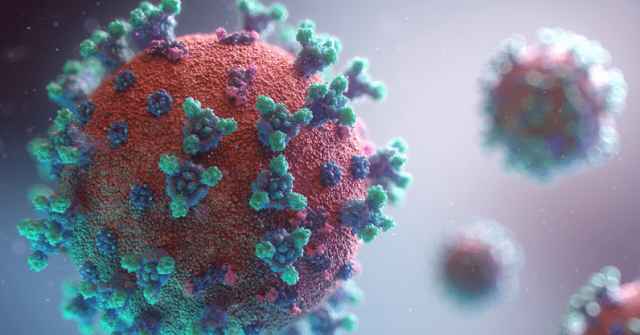Environmental change and COVID-19 are the two most huge emergencies looked by the advanced world – and across the board conduct change is basic to adapt to both. This implies official informing by the legislature and different specialists is basic. To succeed, pioneers need to convey the serious danger successfully and evoke elevated levels of open consistence, without causing unjustifiable frenzy.
Be that as it may, the degree to which individuals agree relies upon their mental channels while getting the messages – as the coronavirus pandemic has appeared..
With COVID-19, the early informing endeavored to outline the idea of the danger. In March, the WHO declared that: "COVID-19 effects the older and those with previous wellbeing conditions most harshly." Similar proclamations were made by the UK government.
A sensible translation of this would be that the infection doesn't "influence" youngsters. However, as new clinical information came in, this message was changed to underline that the infection could influence individuals all things considered and doesn't segregate.
In any case, individuals are not really altogether levelheaded regarding preparing data. Exploratory brain science has revealed numerous circumstances where our thinking is, truth be told, constrained or one-sided.
For instance, a psychological procedure called the "influence heuristic" permits us to settle on choices and tackle issues rapidly and (frequently) proficiently, yet dependent on our sentiments as opposed to rationale. The predisposition has been appeared to impact the two decisions of hazard and conduct.
For COVID-19, the official informing would have set up a more positive response in youngsters contrasted with more seasoned individuals. This would have made them bound to face more challenges – in any event, when new legitimate information about the real dangers came in. Analysts call this "psychophysical desensitizing."
Another psychological snag is affirmation predisposition. This makes us oblivious to information that can't help contradicting our convictions, making us excessively mindful to messages that concur with them. It impacts (in addition to other things) programmed visual consideration regarding certain parts of messages.
As it were, in the event that you are youthful, you may, with no cognizant mindfulness, give minimal visual consideration to the news that the infection is not kidding for individuals everything being equal.
The underlying constructive message for youngsters additionally made a "confidence inclination." This predisposition is ground-breaking – we are aware of different mind components that can guarantee that a positive state of mind endures.
One investigation found that individuals will in general have a decreased degree of neural coding of more negative than foreseen data (in examination with more positive than foreseen data) in a basic locale of the prefrontal cortex, which is engaged with dynamic. This implies we will in general miss the approaching awful news and, regardless of whether we don't, we barely process it.
These inclinations influence our conduct, and there is clear proof that youngsters were bound to neglect to consent to the administration's orders about COVID-19.
An overview directed on March 30 by surveying firm Ipsos MORI found that almost twice the same number of 16-multi year-olds had low or constrained worry about COVID-19 contrasted and grown-ups who were 55 or more seasoned. The more youthful gathering was likewise multiple times as likely as more seasoned grown-ups to disregard government exhortation.
Exercises for environmental change :
Our own examination has indicated that noteworthy intellectual inclinations additionally work with informing about environmental change. One is affirmation inclination – the individuals who don't accept that environmental change is a genuine danger just don't take in messages saying that it is.
In addition, not at all like coronavirus messages, most environmental change messages incidentally emphasize what we call "fleeting" and "spatial" inclinations. The UK government crusade "Follow up on CO2" utilized pictures of grown-ups perusing sleep time stories to kids, which suggested that the genuine danger of environmental change will introduce itself later on – a fleeting predisposition.
Different crusades have utilized the enduring polar bear in the related pictures, which reinforces spatial predisposition – polar bears are in an alternate geological area (to the vast majority of us). These messages , in this manner, take into account a serious extent of hopefulness inclination – with individuals believing that environmental change won't influence them and their own lives.
Exploration utilizing eye-following to break down how they process environmental change messages exhibits the impacts of such inclinations. For instance, idealistic individuals will in general fix their look on the more "positive" parts of environmental change messages (particularly any notices of debates about the hidden science – there is less to stress over if the science isn't conclusive).
These look obsessions can likewise influence what you recollect from such messages and how weak they cause you to feel. On the off chance that you don't believe that environmental change will influence you by and by, the influence heuristic won't be managing you legitimately to fitting therapeutic activity.
To make environmental change messages progressively viable, we have to focus on these intellectual predispositions. To forestall worldly and spatial predispositions, for instance, we need a reasonable message regarding why environmental change is terrible for people in their own lives in the present time and place (building up a suitable influence heuristic).
What's more, to forestall positive thinking inclination, we likewise need to abstain from introducing "the two sides of the contention" in the informing – the science discloses to us that there's just one side. There additionally should be an unmistakable contention with respect to why suggested, feasible practices will work (building up an alternate kind of affirmation inclination).
We additionally need everybody to get the message, not simply a few gatherings – that is a significant exercise from COVID-19. There can be no (obvious) exemptions with regards to environmental change.


















